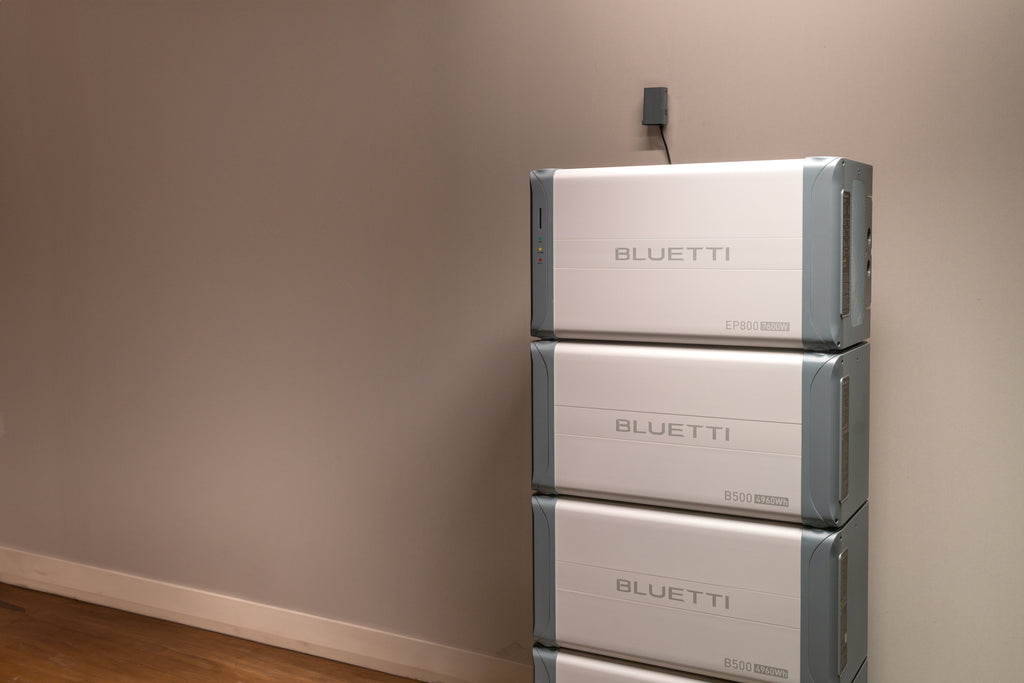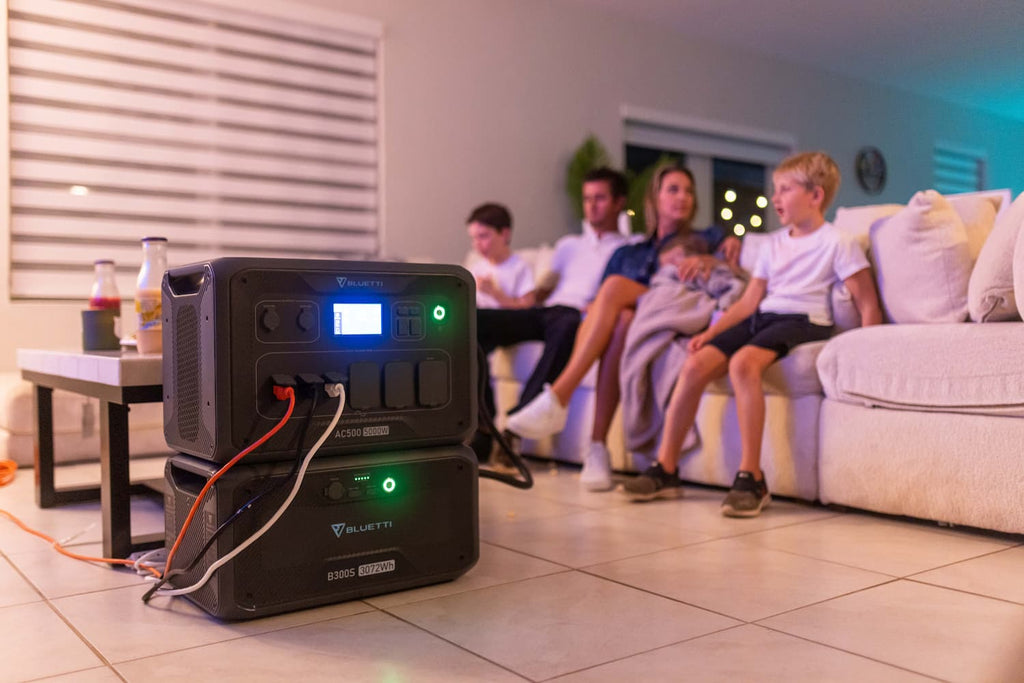Are you looking for a generator that can be used indoors? Well, there are plenty of generator types available in the market for indoor use. You can get yourself an indoor generator that matches your needs and can supply your household appliances.
In this blog, let’s delve into the technical details and types of indoor generators that you can choose between for your household needs. You can continue reading and find out the features of indoor generators that can help you in times of blackouts or power outages.
Here is a detailed outlook on the technicalities of indoor generators.
Is There a Generator That Can Be Used Indoors?
The indoor generator is a mini-power house that sources electricity for your home appliances. The indoor generator produces electricity to supply your household during times of blackouts.
Having an indoor generator turns out to be a blessing, especially when you are living in a small town or area with electricity. Furthermore, if you live in an apartment, the indoor generator is a good choice as a backup plan when the electricity goes off.
However, indoor generators are different from outdoor generators that need to be placed outdoors and close to the natural environment. There are several options among indoor generators that you can choose between for your small apartment. For instance, there are gas-powered indoor generators, diesel generators, and even battery-powered indoor generators.
Although most people prefer gas and gasoline-powered indoor generators, battery-powered indoor generators can work efficiently enough to supply all your household appliances. The battery-powered indoor generators do not require gas or another fuel like gasoline, making them an eco-friendly electric supply.
Furthermore, they are quiet and do not cause noise pollution which might in other cases disturb your working hours.
How Does an Indoor Generator Work?
Indoor generators rely solely on their batteries, which store energy to supply household appliances. You can use the stored energy in your battery to supply your devices. The larger the storage capacity of your battery, the longer these batteries can supply your appliances.
You can plug your devices into the indoor generators until the stored energy gets depleted. Usually, indoor generators come with multiple plugin options, including AC plugs, DC plugs, and USB ports.
These plugs are widely available and will suit most of the devices at your home. All in all, a single generator can source multiple household appliances at a time with its multiple input options. Furthermore, you can also charge your generators through a wall outlet, a car, or a solar panel.
Types of Generators
No matter whether you live in an apartment or a small house, with the increasing dependency on the internet and technology, generators have become a crucial part of our lives. For instance, imagine you are working from home, you are running short of time, and just when you are on the verge of completing your project, the light goes off.
The energy-dependent internet connection goes down. At that crucial moment, you would direly wish you had a backup power supply.
Here are some of the generator types that you can go with depending on your preferences:
1. Portable Solar Generators

You can travel along these small and compact generators, which are usually powered by solar energy. If you are a traveler, you can carry these solar generators along with you and recharge your devices like mobile phones and other portable electronic devices.
Furthermore, because these generators use renewable sources of energy, they are eco-friendly and have low carbon footprints. They are noise-free as well, which makes portable solar generators a tempting choice.
2. Standby Generators
These are the permanent source of electric supply for homes that require more than the standard air-conditioning units. It is used to back industrial and commercial needs as soon as the power goes off.
These generators come with a large fuel tank that can back up the energy supply to all the electricity-hungry appliances in industries and other commercial areas.
3. Gas Generators
Gas generators have been the most popular power generators for supplying appliances at home. However, these do come with certain drawbacks. For instance, gas generators produce carbon emissions and can affect the environment negatively.
What Size Indoor Generator Do I Need?
As imperative as these indoor generators are for your home supply at times of power outages, it is important that you know the size of the indoor generator you need. Your generator size should comply with your household needs.
There are a few considerations you should keep in mind while getting yourself an indoor generator. First, you should calculate the wattage requirement of all the appliances at your home. You can find out the total wattage needs of your household by adding up the wattage consumption of all the appliances at your home.
Next, you should keep in mind the two power ratings of your indoor generators. That is:
- Initial Watts or Maximum Surge: It is the initial power boost that the generator offers to start your appliances on the go.
- Running Watts or Continuous Power Rating: Running watts is the amount of electric energy delivered by the generator continuously to the household appliances. The indoor generators should be able to supply electricity for a longer period.
For instance, refrigerators usually require 1,200 watts of electricity to start, whereas they only require a continuous supply of 20 watts of power. However, while calculating the sum of your household’s wattage consumption, you can conveniently skip the initial watts used by your refrigerator because such a huge number of watts is only required for a few minutes.
Generally, you need at least 2,000-8,000 watts to supply your household appliances. When you go shopping for an indoor generator, you must buy a generator that can supply your household needs.
Here are a few indoor generators you can get to supply household appliances:
1. BLUETTI EP800+B500 Home Battery Backup

This BLUETTI EP800+B500 Home Battery Backup is not just an energy storage backup system but also slashes energy costs. It provides an uninterrupted power supply to your household during power outage hours.
You can install the system with convenience, and also it is cost-effective. It can supply as much power as 7,600 watts of energy. Furthermore, it can store energy between 9.9kWh to 19.8kWh and comes with ten years of warranty.
The BLUETTI EP800 comes with a B500 expansion battery, which is LiFePO4. This battery is reliable and durable. You can charge and discharge the battery for 3500 cycles, and it will still work at 80% efficiency. It can store energy as much as 4,960Wh.
2. BLUETTI AC500 + B300S Home Battery Backup

The BLUETTI AC500 + B300S can provide you with a pure sine wave of 5000-watt AC output. This output power can surge up to 10,000 watts to supply your appliances needing high power output. With this portable power station, you can back up your home 24/7.
Furthermore, its expandable battery system can store energy from 3,072Wh to 18,432Wh. This LiFePO4 battery is durable and reliable. You can recharge and discharge the battery for 3500 cycles, which will still work at 80% efficiency. This power station comes with six charging options that make it an easy-to-use device.
Furthermore, this BLUETTI AC500 + B300S Portable Power Station does not cause noise pollution. The remote application allows you to control it even when you are not at home.
3.BLUETTI AC200MAX + 2*B230

This BLUETTI AC200MAX + 2*B230 offers your household appliances 2200 watts of energy. Furthermore, it can store 6,144 watt-hours of electric energy.
You can recharge the battery using seven methods: an AC source, your car, a solar panel, a lead-acid battery, etc. In addition to this, there are multiple outlets to connect multiple devices and supply them with electricity at the same time.
This power station also comes with a LiFePO4 battery that lasts longer than expected. For instance, you can recharge and discharge the battery for more than 3500 cycles, and it will still be working at 80% efficiency.
You can get further insight into 5 BLUETTI Best Home Power Battery Backup Solutions for 2024 if you are looking for the best backup options for your home.
Final Thoughts
There are generators that are specially designed for indoor usage. These are quiet and eco-friendly generators that can meet up to your household’s daily power requirements. Before you buy a generator, you should know your household's daily power consumption. Subsequently, you should choose according to your daily needs.
Depending on your preferences, you can choose between gasoline-powered, diesel-powered, or battery-powered generators. Battery-powered generators are noise-free and eco-friendly, leaving less carbon footprints than the others.







































































